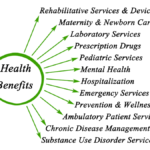The Meaning of Meditation, Affirmation, and Visualization
Meditation, affirmation, and visualization are powerful practices that have been used for centuries to enhance mental, emotional, and physical well-being. While each of these practices has its own unique characteristics, they all share a common goal of promoting self-awareness, relaxation, and personal growth.
Meditation
Meditation is a practice that involves training the mind to focus and redirect thoughts. It is often used to increase calmness, reduce stress, and enhance overall well-being. During meditation, individuals typically sit in a comfortable position and engage in techniques such as deep breathing, mindfulness, or mantra repetition.
The benefits of regular meditation practice are numerous. Research has shown that meditation can help reduce anxiety, improve attention span, enhance self-awareness, and promote emotional well-being. It has also been linked to lower blood pressure, improved sleep, and increased feelings of compassion and empathy.
Affirmation
Affirmation is the practice of repeating positive statements to oneself in order to challenge negative thoughts and beliefs. By consciously choosing and repeating affirmations, individuals can reprogram their subconscious mind and cultivate a more positive mindset. Affirmations can be written down, spoken aloud, or silently repeated in one’s mind.
The power of affirmations lies in their ability to shift one’s perspective and beliefs. By consistently affirming positive statements, individuals can boost their self-esteem, increase confidence, and overcome self-limiting beliefs. Affirmations can be used to improve various aspects of life, including relationships, career, health, and personal growth.
Visualization
Visualization, also known as guided imagery, involves creating vivid mental images of desired outcomes or experiences. By visualizing specific scenarios or goals, individuals can tap into the power of their imagination to manifest positive changes in their lives. Visualization often involves engaging multiple senses, such as sight, sound, and touch, to make the experience more immersive.
Research has shown that visualization can have a profound impact on performance, motivation, and overall well-being. Athletes, for example, often use visualization techniques to enhance their skills and improve their performance. By mentally rehearsing successful outcomes, individuals can increase their confidence, reduce anxiety, and improve their ability to achieve their goals.
Health Benefits of Meditation, Affirmation, and Visualization
While meditation, affirmation, and visualization are distinct practices, they all offer numerous health benefits that can positively impact various aspects of life. Here are some of the key health benefits associated with these practices:
Stress Reduction
All three practices have been shown to reduce stress levels and promote relaxation. Meditation helps calm the mind and relax the body, while affirmation and visualization can shift focus away from negative thoughts and emotions, promoting a sense of calm and well-being.
Improved Mental Health
Meditation, affirmation, and visualization can all contribute to improved mental health. These practices have been shown to reduce symptoms of anxiety and depression, increase self-awareness, and promote a more positive mindset.
Enhanced Focus and Concentration
Regular practice of meditation, affirmation, and visualization can improve focus and concentration. These practices train the mind to stay present and redirect attention, leading to improved cognitive abilities and increased productivity.
Increased Self-Confidence
Affirmation and visualization are particularly effective in boosting self-confidence. By consistently affirming positive statements and visualizing success, individuals can overcome self-doubt and develop a greater belief in their abilities.
Physical Well-being
Research has shown that meditation, affirmation, and visualization can have positive effects on physical health. These practices have been linked to reduced blood pressure, improved sleep quality, enhanced immune function, and decreased pain perception.
Emotional Well-being
Meditation, affirmation, and visualization can all contribute to improved emotional well-being. These practices help individuals develop a greater sense of self-awareness, cultivate positive emotions, and manage stress and negative emotions more effectively.
Overall Well-being
By incorporating meditation, affirmation, and visualization into one’s daily routine, individuals can experience a holistic improvement in their overall well-being. These practices promote a balanced mind-body connection and support personal growth and self-discovery.
In conclusion, meditation, affirmation, and visualization are powerful practices that offer a wide range of health benefits. Whether used individually or in combination, these practices can enhance mental, emotional, and physical well-being, leading to a more fulfilling and balanced life.






